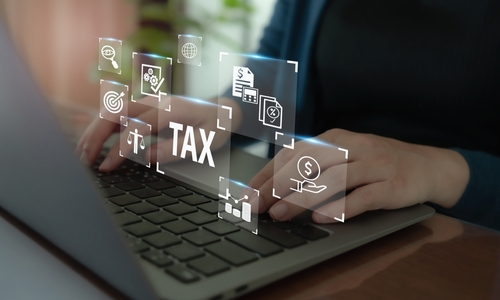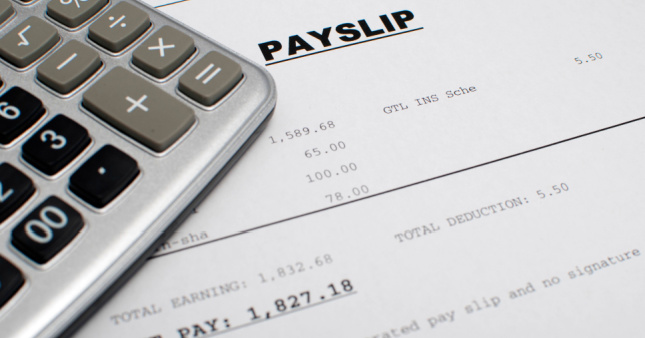
Superannuation is a tax-efficient savings fund that’s built up throughout an employee’s career. This leaves workers with a nest-egg that makes life more comfortable once they have reached retirement.
What is Superannuation?
Superannuation, also known as super, is a retirement savings system for Australian workers. Employers are required by law to pay superannuation contributions for their eligible employees. These contributions are paid into a superannuation fund, which is a type of investment account. The money in the fund is invested by the fund manager, and it grows over time. Employees can access their superannuation in Australia when they retire, or under certain other circumstances, such as if they become permanently disabled or ill.
Who is eligible for superannuation?
Most employees in Australia are eligible for superannuation. To be eligible, employees must:
Be at least 18 years old
Work in Australia
Earn more than $450 per month (before tax)
There are some exceptions to these rules, such as for contractors and employees who are not Australian residents.
How much superannuation do employers have to pay?
The current superannuation guarantee rate is 11%. This means that employers must pay 11% of an eligible employee’s ordinary time earnings into their superannuation fund. Ordinary time earnings include salary, wages, bonuses, and commissions.
The superannuation guarantee rate is scheduled to increase to 12% on 1 July 2025.
Your obligations may be higher under an agreement, award or common law contract so it’s important to get informed and stay on top of industry changes.
Advice regarding tax and superannuation is outside of Employsure’s area of expertise. Any information regarding tax and superannuation provided below is sourced from ATO. The below information does not constitute as advice or is not intended to be replaced as financial advice. Employsure recommends seeking specialist advice from your accountant, tax specialist or the ATO for further information.
Superannuation rate increases
| Financial year | Increase | Rate |
| Before 1 July 2013 | 9% | |
| 1 July 2013 – 30 June 2014 | 0.25% | 9.25% |
| 1 July 2014 – 30 June 2015 | 0.25% | 9.5% |
| 1 July 2015 – 30 June 2016 | 0.0% | 9.5% |
| 1 July 2016 – 30 June 2017 | 0.0% | 9.5% |
| 1 July 2017 – 30 June 2018 | 0.0% | 9.5% |
| 1 July 2018 – 30 June 2019 | 0.0% | 9.5% |
| 1 July 2019 – 30 June 2020 | 0.0% | 9.5% |
| 1 July 2020 – 30 June 2021 | 0.0% | 9.5% |
| 1 July 2021 – 30 June 2022 | 0.5% | 10% |
| 1 July 2022 – 30 June 2023 | 0.5% | 11% |
Ordinary time earnings (OTE)
Super is payable on all “ordinary time earnings” (OTE), the earnings you pay an employee for their usual hours of work. OTE includes base rates, shift loadings, bonuses, commissions and most allowances. OTE does not include payments for overtime or reimbursement of expense
When do employers have to pay superannuation?
Superannuation contributions need to be made at least four times a year, and this must be within 28 days of the end of each quarter.
|
Quarter |
Period | Final payment date |
| 1 | 1 July–30 September | 28 October |
| 2 | 1 October–31 December | 28 January |
| 3 | 1 January–31 March | 28 April |
| 4 | 1 April–30 June | 28 July |
Employers can choose to pay superannuation more often than this, but they cannot pay less often. If you do not make payments before the final cut-off dates, you are liable for a superannuation guarantee charge (SGC).
How do employers pay superannuation?
There are a few different ways that employers can pay superannuation. The most common way is to pay electronically to the employee’s nominated superannuation fund. Employers can also pay superannuation by cheque or BPAY.
Employers need to collect information from their employees about their superannuation funds. This includes the fund’s name and ABN, as well as the employee’s membership number.
What happens if an employer doesn’t pay superannuation?
If an employer doesn’t pay superannuation for their eligible employees, they may be required to pay the superannuation guarantee charge (SGC). The SGC is a tax penalty that is paid to the Australian Taxation Office (ATO).
The SGC is calculated at a rate of 99% of the unpaid superannuation guarantee contributions. This means that employers who don’t pay superannuation will end up paying more than they would have if they had paid the contributions on time.
To avoid penalties, employers should keep thorough records of super contributions for all employees, along with evidence of the transactions.
What are the benefits of paying superannuation for employees?
There are a number of benefits to paying superannuation for employees. These include:
It helps employees to save for their retirement.
It can attract and retain good employees.
It can improve employee morale and productivity.
It can reduce the burden on the government in terms of providing retirement income support.
What are the benefits of paying superannuation for employers?
There are also a number of benefits to paying superannuation for employers. These include:
It can help to reduce the risk of being fined for not paying superannuation.
It can help to attract and retain good employees.
It can improve employee morale and productivity.
It can be used as a tax deduction.
How can employers choose a superannuation fund?
Employees are allowed to choose their own superfund or retirement savings account. Employers need to provide employees with a choice of fund form when they first start working with you.
Also, employers should have a default fund for employees without a preferred fund. Many awards and agreements already contain default funds.
There are a wide variety of superannuation funds to pick from in Australia. When choosing a fund, employers should consider the following factors:
The fees and charges associated with the fund.
The investment options available in the fund.
The fund’s performance over time.
The fund’s customer service.
Employers can also compare superannuation funds using the ATO’s YourSuper tool.
What are the different types of superannuation funds?
There are two main types of superannuation funds in Australia:
Retail superannuation funds: Retail funds are typically owned by banks, insurance companies, and other financial institutions.
Industry superannuation funds: Industry funds are owned by their members and typically have lower fees than retail funds.
Employers can also choose to set up their own self-managed superannuation fund (SMSF). However, SMSFs are complex and require a lot of time and expertise to manage.
What is ESS Superannuation?
ESS Superannuation is a superannuation fund for employees of the Australian federal government and some other government agencies. It is one of the largest superannuation funds in Australia, with over 1.7 million members and over $170 billion in assets under management.
ESS Superannuation offers a range of superannuation products and services, available to:
Current and former employees of the Australian federal government and some other government agencies, such as the Australian Postal Corporation and the Australian Broadcasting Corporation.
Employees of Victorian emergency services, such as the Country Fire Authority and the Metropolitan Fire Brigade.
Employees of some Victorian state government departments and agencies.
What are an employer’s superannuation responsibilities?
Employers have several responsibilities in relation to superannuation, including:
Identifying which of their employees are eligible for superannuation.
Calculating and paying the correct amount of superannuation contributions.
Paying superannuation contributions on time.
Choosing a superannuation fund for their employees (if they do not already have one or have a preferred option).
Providing their employees with information about their superannuation account and any employer contributions.
Advice regarding tax and superannuation is outside of Employsure’s area of expertise. Any information regarding tax and superannuation provided above is sourced from ATO. The above information does not constitute legal advice. Employsure recommends seeking specialist advice from your accountant, tax specialist or the ATO for further information.
For all other Employment Relations and Health & Safety matters, please call Employsure’s FREE Advice Line now on 1300 651 415 to get your questions answered by the experts.



